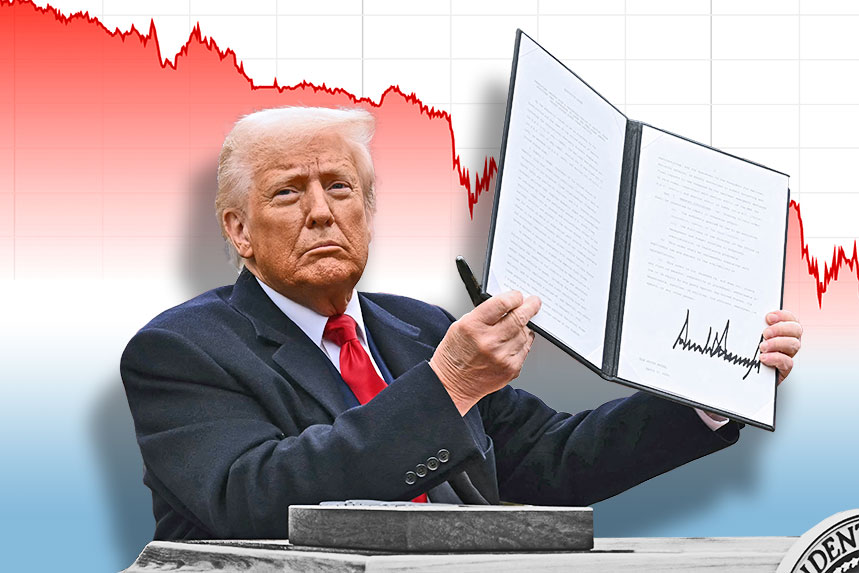Washington, D.C., September 26, 2025 — The United States government’s decision to impose a 100% tariff on imported pharmaceuticals has ignited widespread protests across several countries and drawn sharp criticism from international trade organizations, health advocacy groups, and foreign governments. The tariff, announced by President Donald Trump on Thursday, aims to bolster domestic drug production but has raised concerns over rising medicine costs and potential shortages worldwide.
Background: Why the US Imposed the 100% Tariff
According to the Office of the United States Trade Representative (USTR), the US tariffs on pharmaceuticals were introduced to reduce the country’s reliance on foreign drug manufacturers, particularly from Europe, India, and China. Administration officials argued that the tariff would encourage domestic pharmaceutical production, citing national security and supply chain vulnerabilities exposed during recent global health crises.
In a statement from the White House, President Trump said, “For too long, America has been dependent on foreign suppliers for essential medicines. This tariff will ensure that we protect our citizens’ health and build a stronger pharmaceutical industry at home.”
However, trade experts warn that the move could trigger a new phase in the ongoing trade war between the US and several key trading partners.
Global Reaction: Protests and Diplomatic Tensions
Protests erupted in major cities including London, New Delhi, Berlin, and Toronto as healthcare workers, patients’ rights advocates, and pharmaceutical industry employees voiced their concerns. Demonstrators carried signs warning of soaring drug prices and reduced access to essential medicines for vulnerable populations.
European Union Trade Commissioner Helena Schmidt called the US decision “a dangerous escalation that puts lives at risk for the sake of protectionism.” The World Trade Organization (WTO) expressed “serious concern” and indicated it may review the legality of the tariff under international trade rules.
India’s Ministry of Commerce described the move as “unjustified and harmful to global healthcare supply chains,” noting that India exports a significant share of generic medicines to the US market.
Economic & Healthcare Impact
Economists predict that the US tariffs on pharmaceuticals could lead to a sharp increase in the cost of imported medicines, with some estimates suggesting price hikes of 30–50% for certain life-saving drugs. This development could disproportionately affect patients with chronic conditions such as diabetes, cancer, and cardiovascular diseases who rely on affordable generics.
Supply chain disruptions are also expected. The Healthcare Supply Coalition warned that the tariff might discourage imports of critical active pharmaceutical ingredients (APIs), leading to delays in drug production and distribution worldwide.
Dr. Maria Gonzalez, a senior advisor at the Global Health Access Network, said, “The tariff risks undermining decades of progress in making essential medicines affordable and accessible, particularly in low-income regions.”
Political Repercussions and Trade Relations
The decision has strained US relations with its major trading partners. The European Union, India, and Canada are reportedly considering retaliatory tariffs on US goods, potentially escalating into a broader trade war.
Political analysts note that the move could influence diplomatic discussions at the upcoming World Health and Trade Summit in Geneva. “This tariff not only threatens global healthcare stability but also challenges the principles of fair trade that the US has long championed,” said Dr. Alan Peters, a senior fellow at the Center for Strategic International Studies.
Statements & Quotes
- President Donald Trump: “We will no longer allow foreign countries to profit at the expense of American patients and workers.”
- Helena Schmidt, EU Trade Commissioner: “This unilateral action undermines international cooperation on public health and trade.”
- Rajesh Kumar, Indian Commerce Minister: “We urge the United States to reconsider this decision before it damages critical supply chains and global health efforts.”
- World Health Organization (WHO) Spokesperson: “Policies that restrict access to affordable medicines put vulnerable populations at risk, particularly in developing countries.”
Next Steps: Negotiations and Possible Retaliation
Diplomatic sources indicate that emergency talks are being planned between US and EU trade officials to seek a resolution. Several affected countries have signaled their intention to challenge the tariffs at the WTO dispute settlement body.
Meanwhile, US pharmaceutical companies have expressed mixed reactions. While some domestic manufacturers welcomed the protectionist measure, others reliant on imported raw materials warned it could backfire by increasing their production costs.
Conclusion
The US tariffs on pharmaceuticals highlight the delicate balance between national security interests and global health priorities. As protests continue to grow and foreign governments explore countermeasures, the world watches closely to see whether negotiations can defuse the escalating tensions.
For millions of patients worldwide, the outcome of this trade dispute will determine not just the price of medicines but also the stability of an already fragile global healthcare system.


